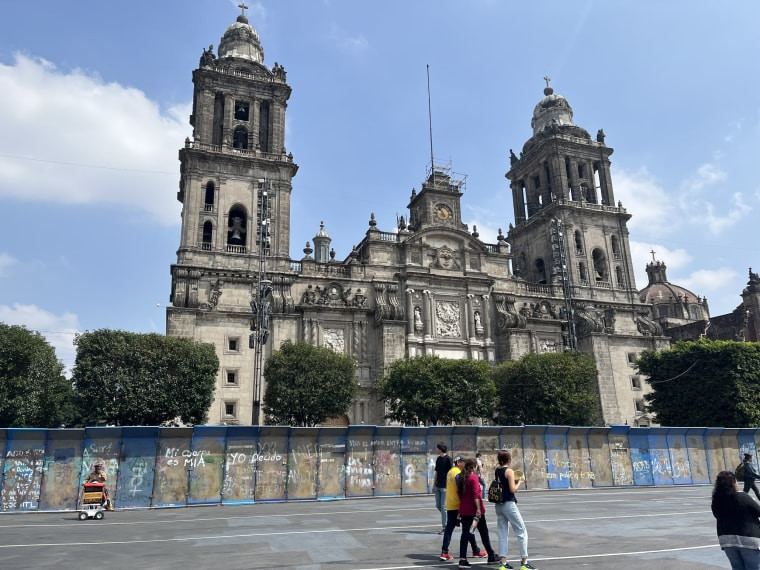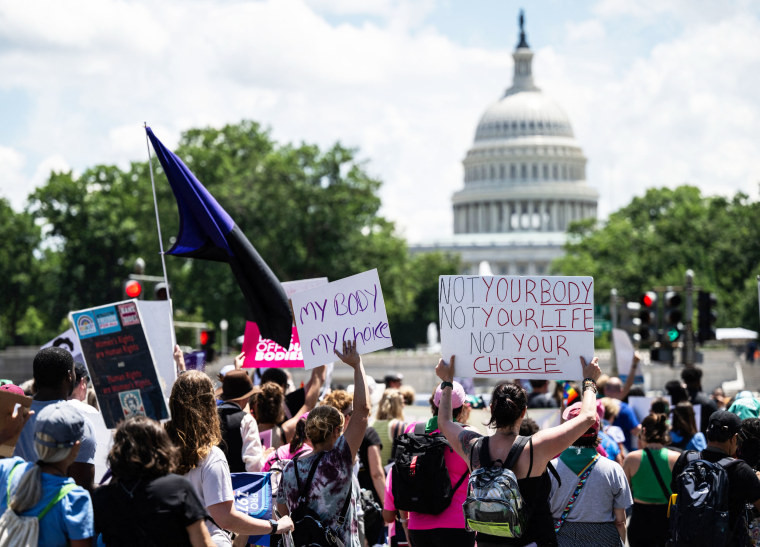Are you curious about When Did Abortion Become Legal In Mexico? At Gaymexico.net, we understand the importance of accessing clear and accurate information about LGBTQ+ rights and related issues in Mexico, including reproductive rights and abortion access. Our mission is to provide reliable resources for the LGBTQ+ community and allies, ensuring everyone can make informed decisions and navigate their experiences safely and confidently in Mexico.
Mexico’s journey toward legalizing abortion has been marked by significant milestones, reflecting the country’s evolving social and legal landscape. Keep reading to understand the timeline, current status, and resources available, empowering you with knowledge and support. Let’s dive into this important topic, providing clarity on legality, access, and social context, while promoting safe travel and community engagement in Mexico.
1. The Decriminalization of Abortion in Mexico City (2007)
Abortion’s legalization journey in Mexico commenced with a groundbreaking decision in Mexico City.
When did Mexico City decriminalize abortion?
In 2007, Mexico City made history by decriminalizing abortion up to 12 weeks of gestation. This landmark ruling paved the way for other states in Mexico to follow suit. The decision reflected a growing recognition of women’s reproductive rights and autonomy.
Why was the Mexico City decision significant?
This pivotal decision not only allowed women in Mexico City to access safe and legal abortion services but also set a precedent for other regions in the country. This action challenged deeply entrenched social stigmas and conservative attitudes toward reproductive health.
How did the decriminalization in Mexico City impact healthcare services?
Following decriminalization, clinics like Fundación ILE were established in Mexico City to provide comprehensive abortion care services. These clinics offer medical support, counseling, and accurate information, ensuring that women feel supported and informed throughout the process. Daniel Lopez, an administrator at Fundación ILE, emphasized that the clinic aims to make the experience more of an accompaniment than just a medical treatment, ensuring women do not feel alone.
 Fundación ILE examination room offering comprehensive abortion care services
Fundación ILE examination room offering comprehensive abortion care services
2. The Supreme Court Ruling of 2023: A Nationwide Decriminalization
In September 2023, Mexico’s Supreme Court issued a landmark ruling that decriminalized abortion nationwide.
What did the Supreme Court’s decision entail?
The Supreme Court’s ruling invalidated provisions in the federal penal code that criminalized abortion, ensuring that women across the country have the right to access abortion services without fear of legal repercussions. This decision marked a significant turning point in the fight for reproductive rights in Mexico.
How did this contrast with the US situation post-Roe v. Wade?
This decision starkly contrasts the growing abortion restrictions in many U.S. states after the U.S. Supreme Court overturned Roe v. Wade. While the U.S. saw a rollback of federal protections for abortion rights, Mexico moved towards greater reproductive freedom.
What were the immediate effects of the Supreme Court ruling?
Following the Supreme Court’s decision, there was an increased focus on ensuring access to abortion services across all Mexican states. However, challenges remain, including logistical issues and deeply ingrained social stigmas.
3. Challenges and the Path to “Social Decriminalization”
Despite legal advancements, significant challenges persist in fully realizing reproductive rights in Mexico.
What is “social decriminalization” and why is it important?
Fanny Cata Gómez-Lugo of the Women’s Equality Center emphasizes that legal decriminalization is just the first step. “Social decriminalization” is crucial to overcome deeply ingrained stigmas and patriarchal systems that view women as vessels for other purposes rather than as human beings with their own rights.
What logistical challenges exist?
Logistical challenges include allocating resources, training medical personnel, and ensuring that abortion services are accessible in all parts of the country, particularly in rural and underserved areas.
How does cultural conservatism impact abortion access?
Mexico, a culturally conservative country with a predominantly Catholic population, faces significant resistance from religious institutions and certain segments of society. Overcoming these cultural barriers is essential to ensure that women can exercise their reproductive rights without facing judgment or discrimination. According to data published by the Pew Research Center in June, about 56% of religiously unaffiliated Mexicans support abortion in “all or most cases,” compared to 44% of those with religious affiliations.
What role does misinformation play?
Misinformation and anti-abortion narratives continue to circulate, often accompanied by misleading messages from some healthcare providers. Fundación ILE addresses this by disseminating factual information through social media, providing accurate details about abortion procedures and dispelling myths.
 Graffiti covering barricades outside the Metropolitan Cathedral in Mexico City
Graffiti covering barricades outside the Metropolitan Cathedral in Mexico City
4. The Cultural and Religious Context
Religion significantly influences the cultural conversation around abortion in Mexico.
How do religious beliefs affect attitudes toward abortion?
In Mexico, where nearly 80% of the population identifies as Catholic, religious beliefs often clash with the idea of terminating a pregnancy. Elyse Ona Singer, a professor of cultural anthropology at the University of Oklahoma, notes that Catholic notions of sacrificial femininity contrast with the concept of abortion rights.
What actions have abortion activists taken?
Despite religious opposition, Mexico has a fervent abortion activist movement. Following the Supreme Court’s decision, activists spray-painted messages of support for abortion rights on barricades outside Mexico’s Metropolitan Cathedral, highlighting the ongoing tension between religious institutions and advocates for reproductive rights.
How do anti-abortion groups operate in Mexico?
Anti-abortion groups, like Pasos Por la Vida, focus on cultural messages to promote motherhood and emphasize that abortion is irreversible. They aim to make abortion “unthinkable” by stressing the presence of a baby and the potential emotional and physical harm to the woman.
5. Abortion Access for American Citizens
The increasing availability of abortions in Mexico contrasts sharply with the restrictions in some U.S. states, leading some American women to seek abortion care across the border.
Why are Americans seeking abortions in Mexico?
Since the overturning of Roe v. Wade, many American women have been forced to travel across state or international lines to receive abortion care. Mexico has become an increasingly attractive option due to its more permissive abortion laws and the accessibility of abortive drugs like misoprostol.
How accessible are abortive drugs like misoprostol in Mexico?
Misoprostol, a common abortive drug, is available over the counter in Mexico to treat stomach ulcers. This accessibility makes it easier for women, including those from the U.S., to obtain medication for abortions.
What percentage of Fundación ILE clients are Americans?
Lopez estimates that approximately 15% of the clients served by Fundación ILE each month are Americans, a number that has grown since the end of Roe v. Wade.
 Abortion rights demonstrators rallying in Washington, D.C.
Abortion rights demonstrators rallying in Washington, D.C.
6. The Impact on Women’s Health and Well-being
Legalizing abortion has profound implications for women’s health and overall well-being.
How does legalizing abortion affect women’s health outcomes?
Legalizing abortion ensures that women can access safe and regulated medical procedures, reducing the risks associated with unsafe, clandestine abortions. Access to safe abortion services is crucial for protecting women’s health and preventing complications.
What are the psychological benefits of having access to safe abortion services?
Access to safe abortion services can alleviate anxiety and distress associated with unwanted pregnancies. It empowers women to make decisions that align with their personal circumstances, contributing to their overall psychological well-being.
How does it affect women’s socio-economic status?
By allowing women to control their reproductive choices, legalizing abortion enables them to pursue educational and professional opportunities, improving their socio-economic status and overall quality of life.
7. Resources and Support for LGBTQ+ Individuals in Mexico
For LGBTQ+ individuals seeking information and support in Mexico, several organizations and resources are available.
What resources does gaymexico.net offer?
Gaymexico.net provides comprehensive guides on LGBTQ+-friendly destinations, events, bars, clubs, and hotels in Mexico. It also offers up-to-date news on legal and social issues affecting the LGBTQ+ community and introduces local LGBTQ+ support groups.
Are there specific LGBTQ+ organizations in Mexico offering support?
Yes, numerous LGBTQ+ organizations in Mexico offer support, advocacy, and resources. These groups work to promote LGBTQ+ rights, provide safe spaces, and offer assistance to those in need.
Where can LGBTQ+ individuals find safe travel tips for Mexico?
Gaymexico.net offers tips and advice for LGBTQ+ individuals traveling in Mexico, ensuring they can explore the country safely and comfortably. These tips include information on local laws, cultural norms, and LGBTQ+-friendly establishments.
8. Navigating Reproductive Rights in a Shifting Landscape
Understanding the evolving legal and social landscape of reproductive rights in Mexico is crucial for both residents and visitors.
How can individuals stay informed about changes in abortion laws?
Staying informed about changes in abortion laws and regulations requires continuous monitoring of news outlets, legal updates, and announcements from advocacy groups. Gaymexico.net aims to provide the latest information on reproductive rights in Mexico.
What is the role of advocacy groups in advancing reproductive rights?
Advocacy groups play a vital role in advancing reproductive rights by lobbying for legal reforms, raising awareness about reproductive health issues, and providing support to individuals seeking abortion services.
How can people support the “social decriminalization” of abortion?
Supporting the “social decriminalization” of abortion involves challenging stigmas, promoting open and respectful conversations about reproductive health, and advocating for policies that protect women’s reproductive rights.
9. Gaymexico.net: Your Go-To Resource for LGBTQ+ Information in Mexico
Gaymexico.net stands as a comprehensive and reliable platform for LGBTQ+ individuals seeking information, support, and community in Mexico.
What makes gaymexico.net a valuable resource?
Gaymexico.net offers a wealth of information, including travel guides, event listings, news updates, and resources for LGBTQ+ individuals in Mexico. The site is dedicated to providing accurate, up-to-date, and culturally sensitive content.
How does gaymexico.net support the LGBTQ+ community?
Gaymexico.net supports the LGBTQ+ community by fostering a sense of belonging, providing a platform for sharing experiences, and advocating for LGBTQ+ rights in Mexico.
What kind of travel information can be found on gaymexico.net?
Gaymexico.net provides detailed travel guides to LGBTQ+-friendly destinations in Mexico, including information on accommodations, nightlife, cultural attractions, and safety tips.
Address: 3255 Wilshire Blvd, Los Angeles, CA 90010, United States.
Phone: +1 (213) 380-2177.
Website: gaymexico.net.
10. Frequently Asked Questions (FAQs) About Abortion Laws in Mexico
Addressing common questions about abortion laws in Mexico helps clarify misinformation and provide accessible information.
When did abortion become legal in Mexico City?
Abortion was decriminalized in Mexico City in 2007 up to 12 weeks of gestation.
Is abortion legal throughout Mexico?
Yes, following the Supreme Court ruling in September 2023, abortion is decriminalized nationwide in Mexico.
Can American citizens get abortions in Mexico?
Yes, American citizens can travel to Mexico to obtain abortion services.
What is misoprostol and how is it used for abortions?
Misoprostol is a medication used to induce abortions and is available over the counter in Mexico.
What challenges remain in ensuring access to abortion in Mexico?
Challenges include logistical issues, cultural stigmas, and misinformation.
How do religious beliefs impact abortion access in Mexico?
Religious beliefs contribute to cultural conservatism, which can hinder the acceptance and accessibility of abortion services.
What is “social decriminalization” and why is it necessary?
Social decriminalization involves overcoming societal stigmas and patriarchal systems to ensure women can exercise their reproductive rights without judgment.
Are there organizations in Mexico that provide support for women seeking abortions?
Yes, organizations like Fundación ILE provide medical support, counseling, and accurate information to women seeking abortions.
How can I stay informed about changes in abortion laws in Mexico?
Stay informed through news outlets, legal updates, and resources like Gaymexico.net.
What resources does Gaymexico.net offer for LGBTQ+ travelers in Mexico?
Gaymexico.net provides guides on LGBTQ+-friendly destinations, events, and support groups, as well as safety tips for traveling in Mexico.
By offering detailed answers to these frequently asked questions, we aim to provide clarity, dispel myths, and empower individuals with the information they need to navigate the landscape of abortion laws in Mexico.
At Gaymexico.net, we are committed to providing you with the resources and information you need to navigate Mexico confidently and safely. Whether you’re planning a trip, seeking community, or simply wanting to stay informed, we’re here to support you. Explore our guides, discover LGBTQ+-friendly destinations, and connect with the community today.
Ready to explore Mexico? Visit gaymexico.net for comprehensive travel guides, event listings, and community resources!